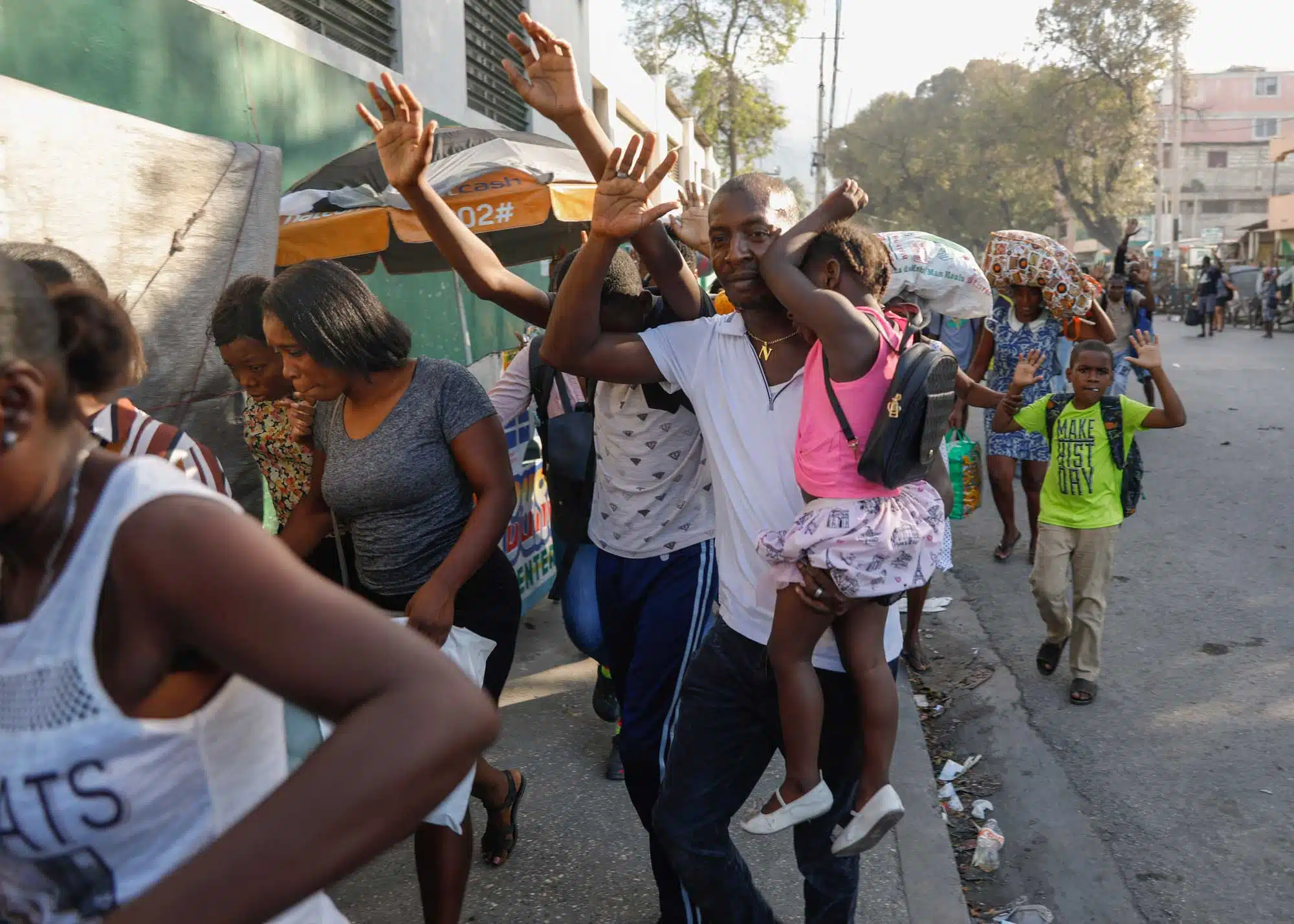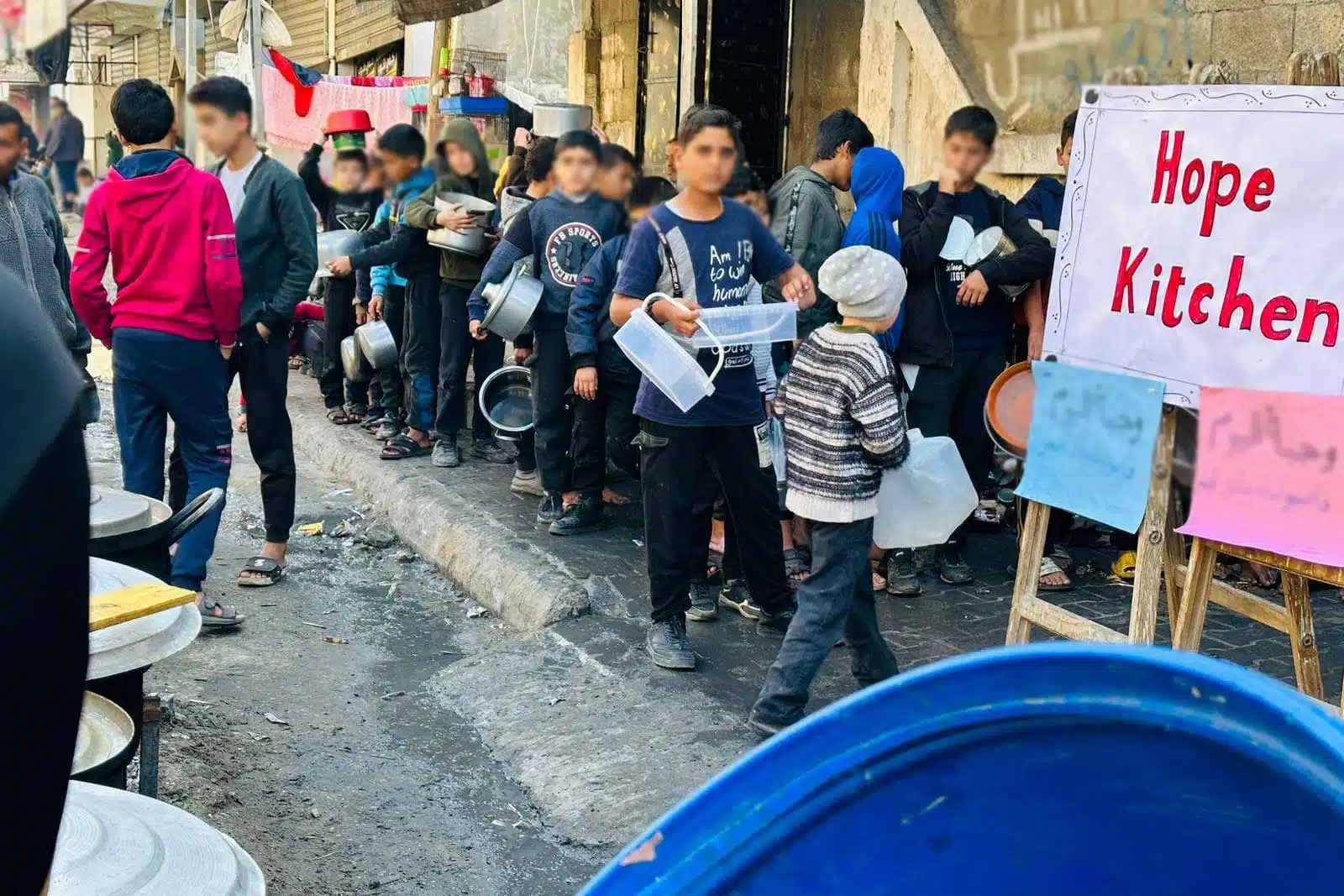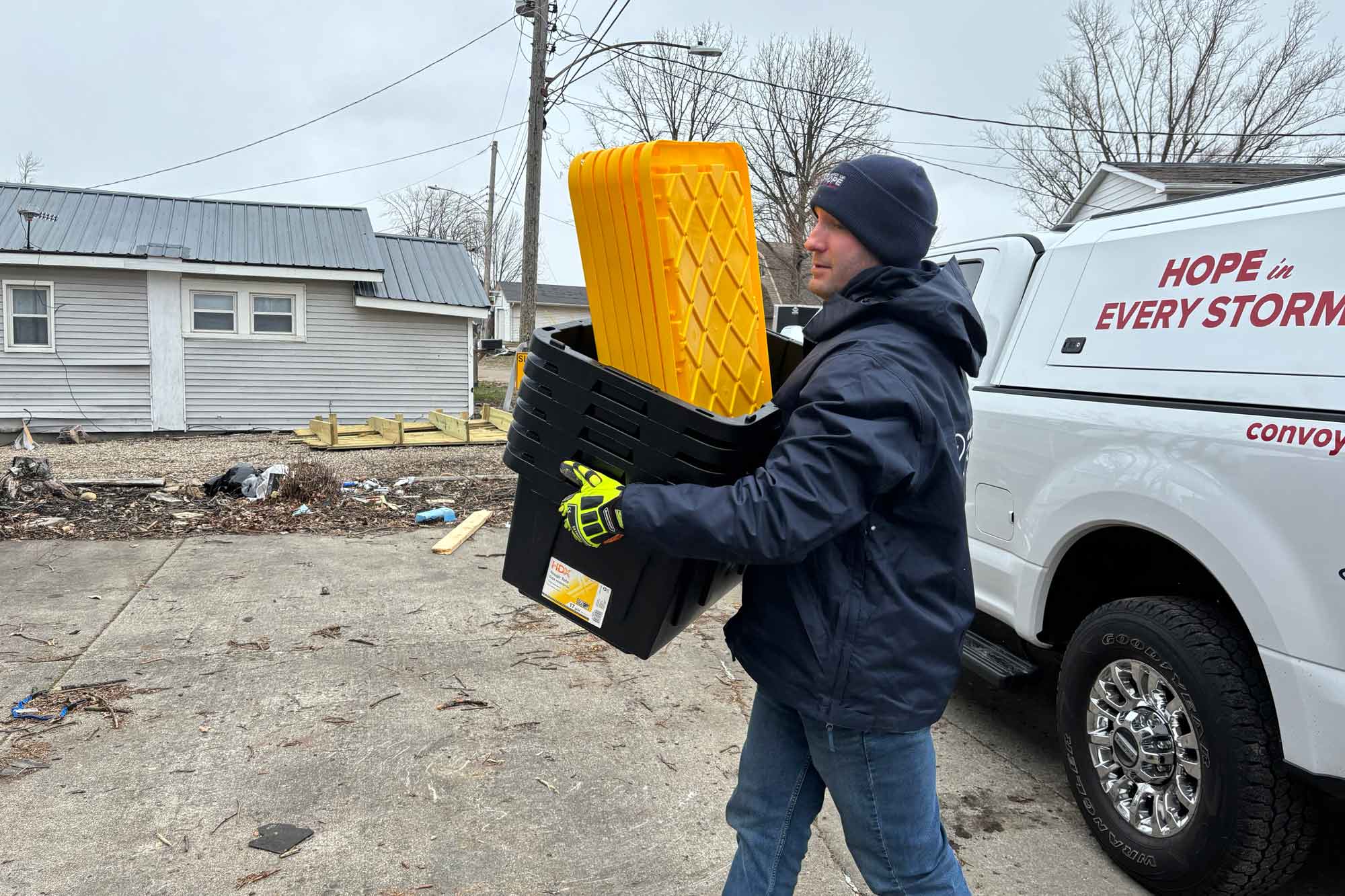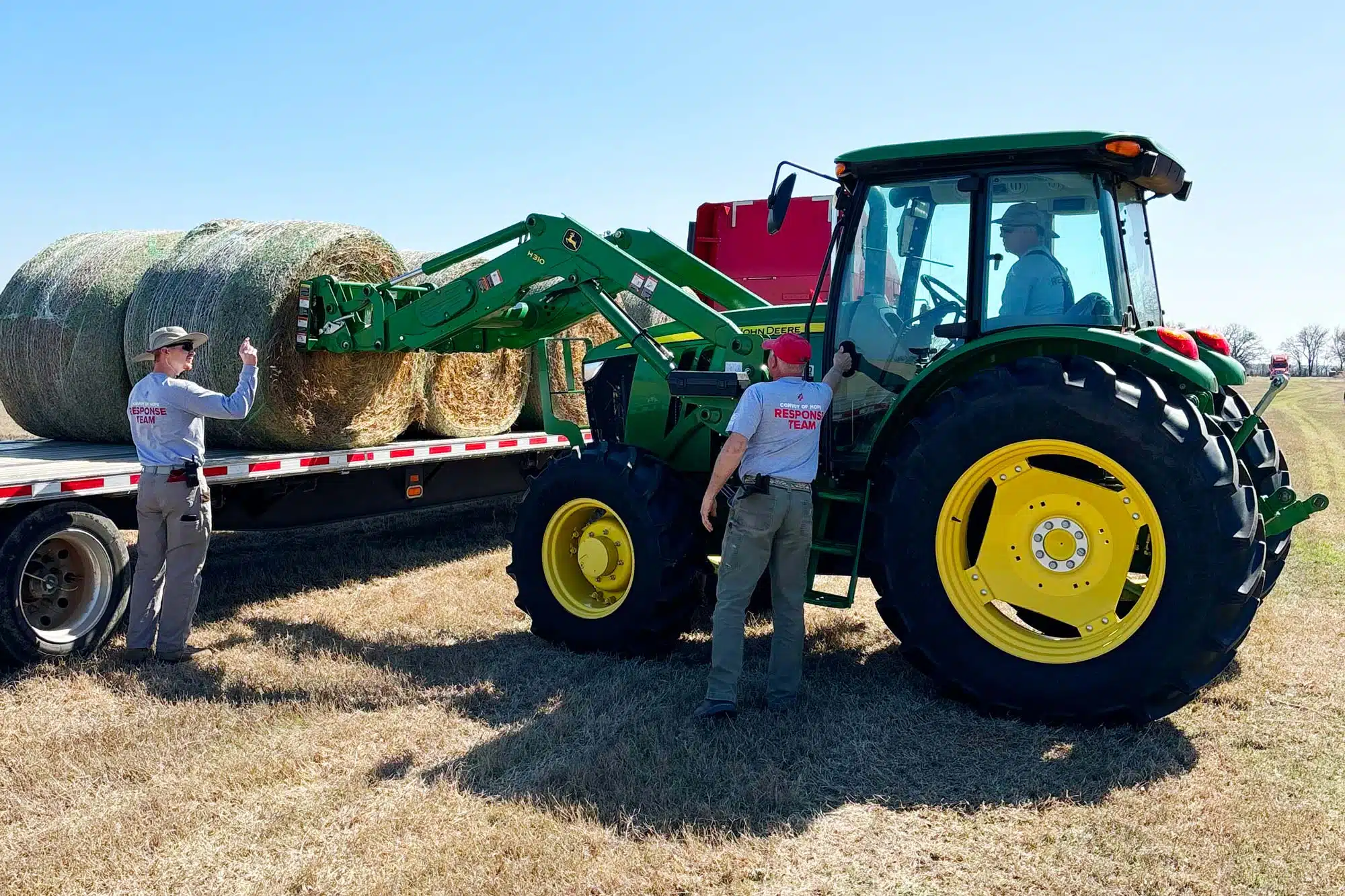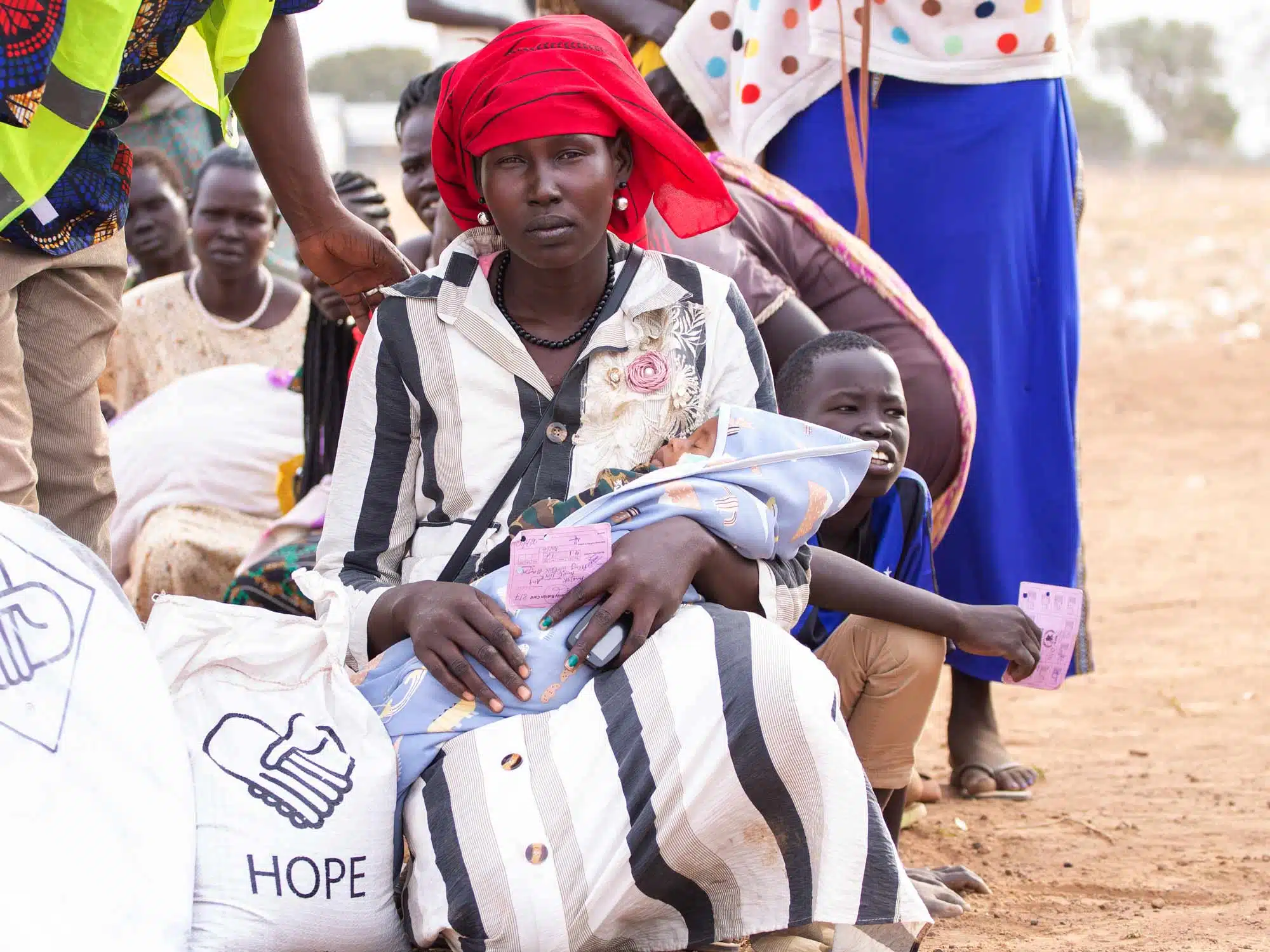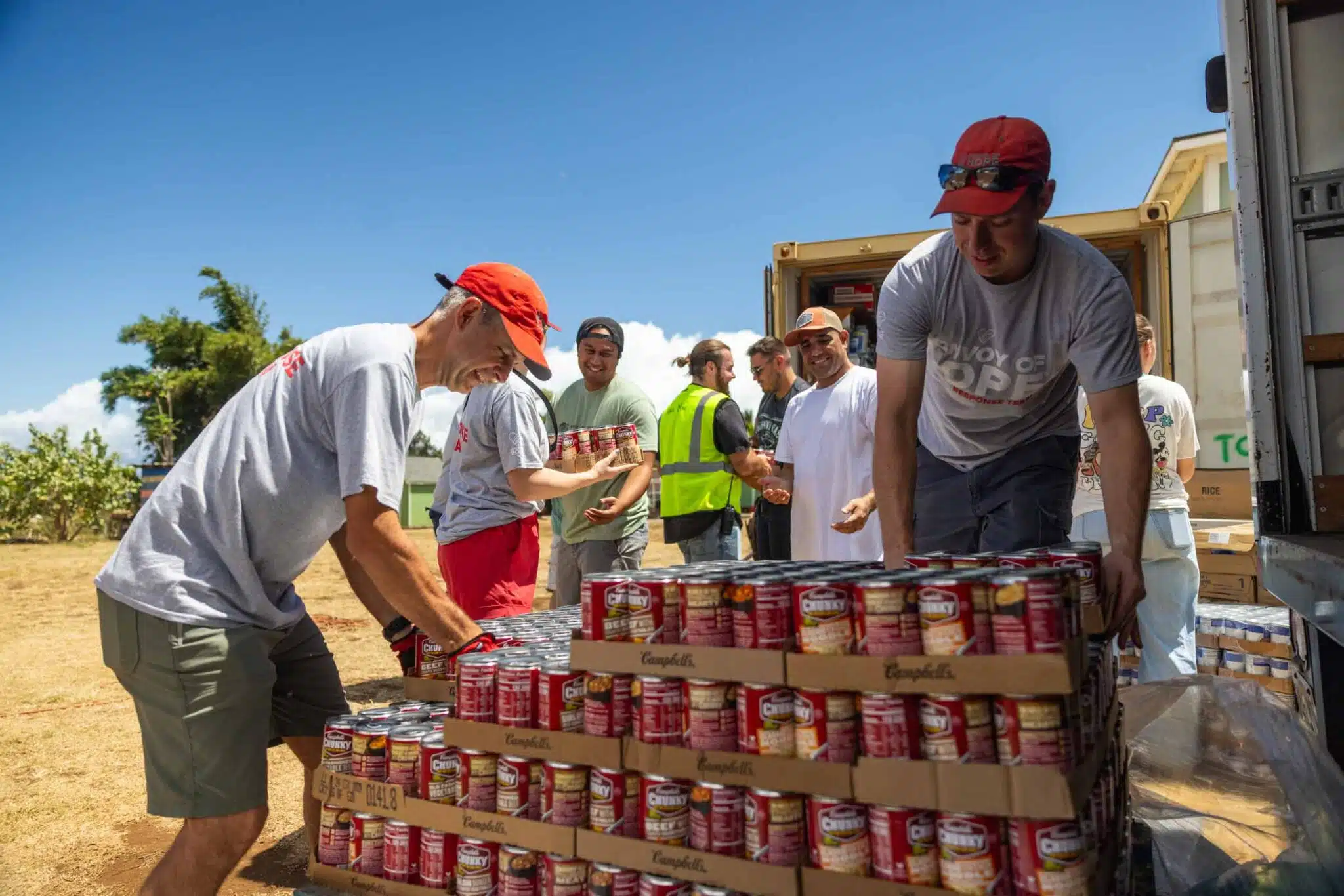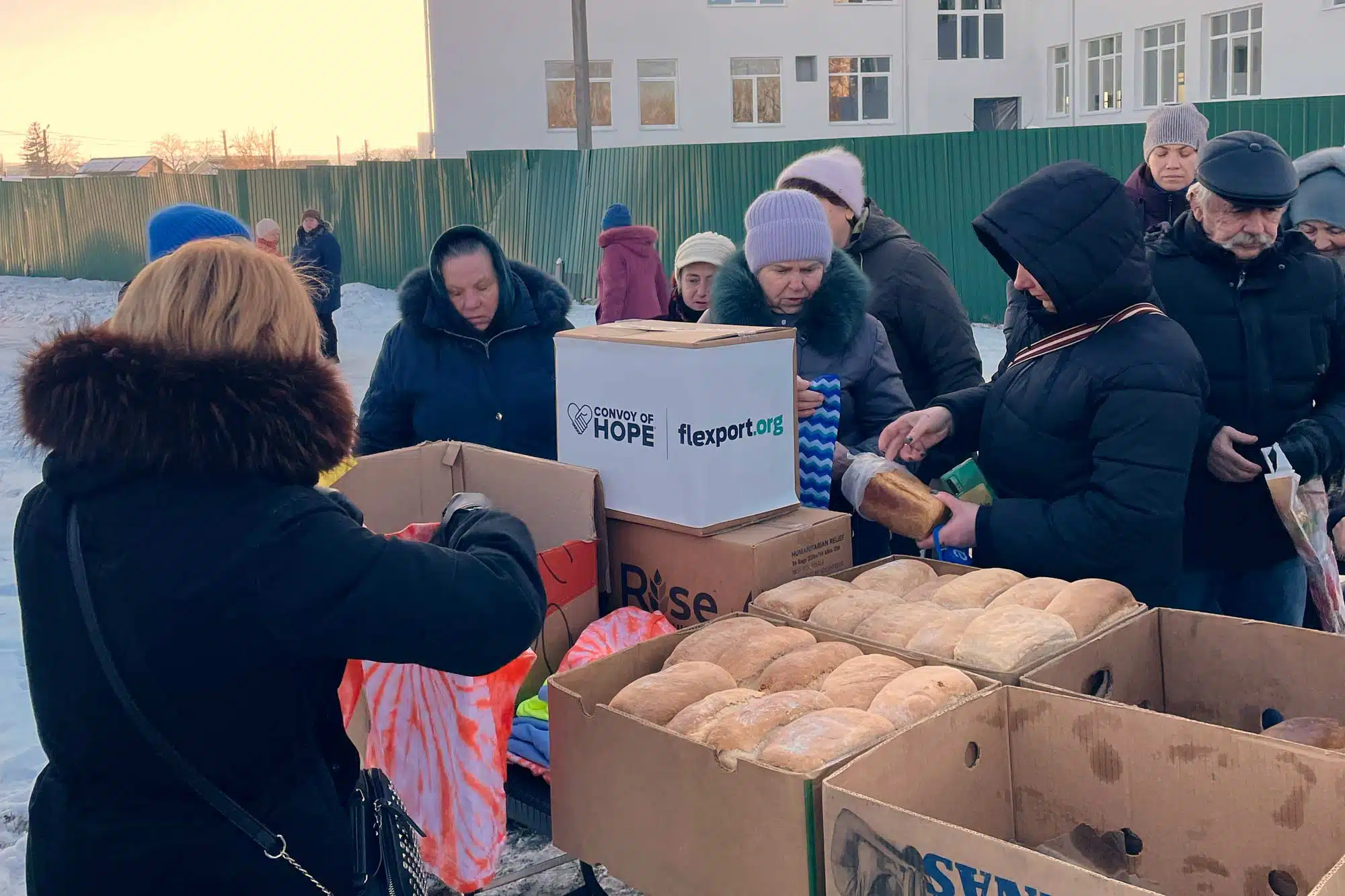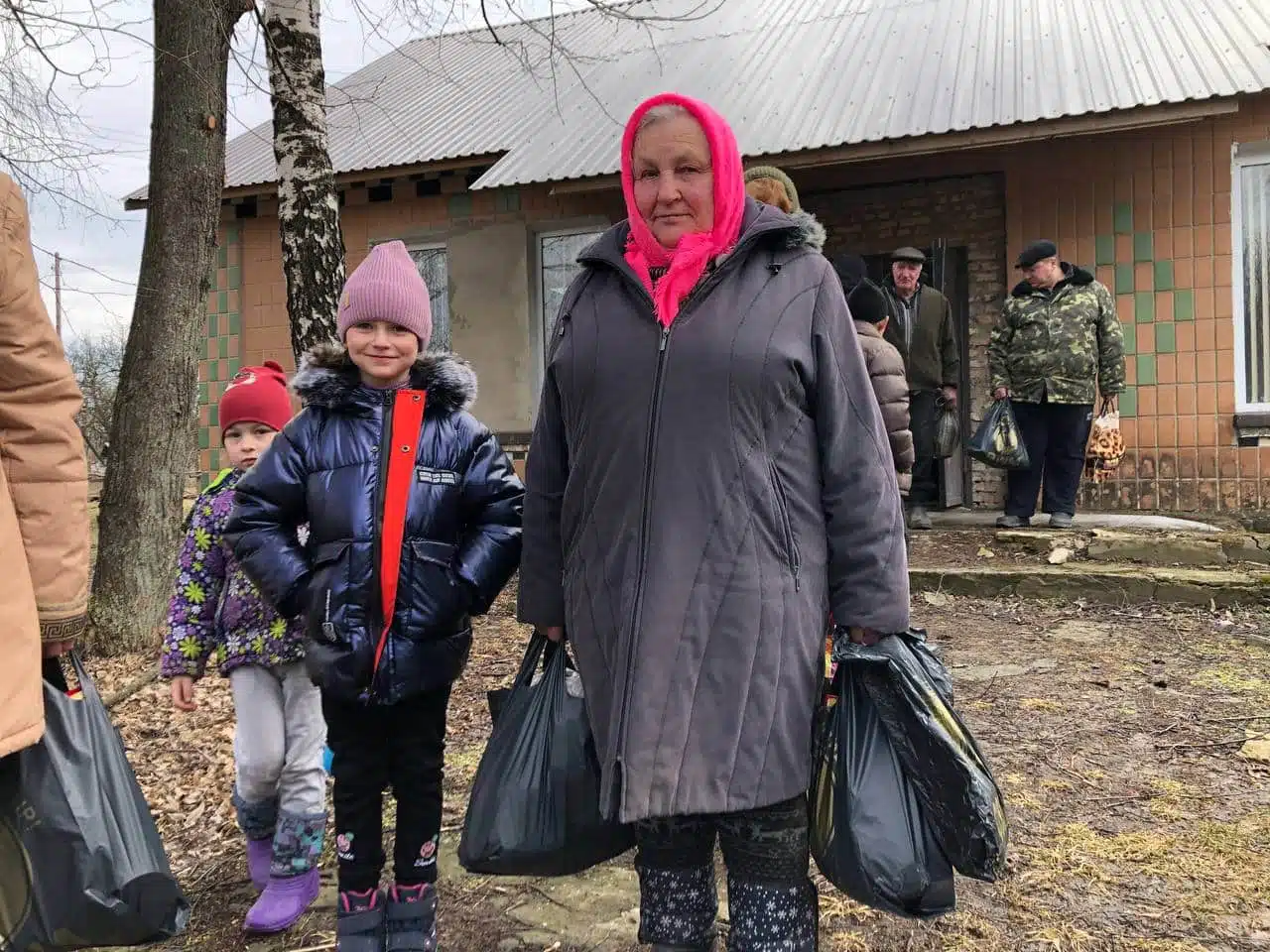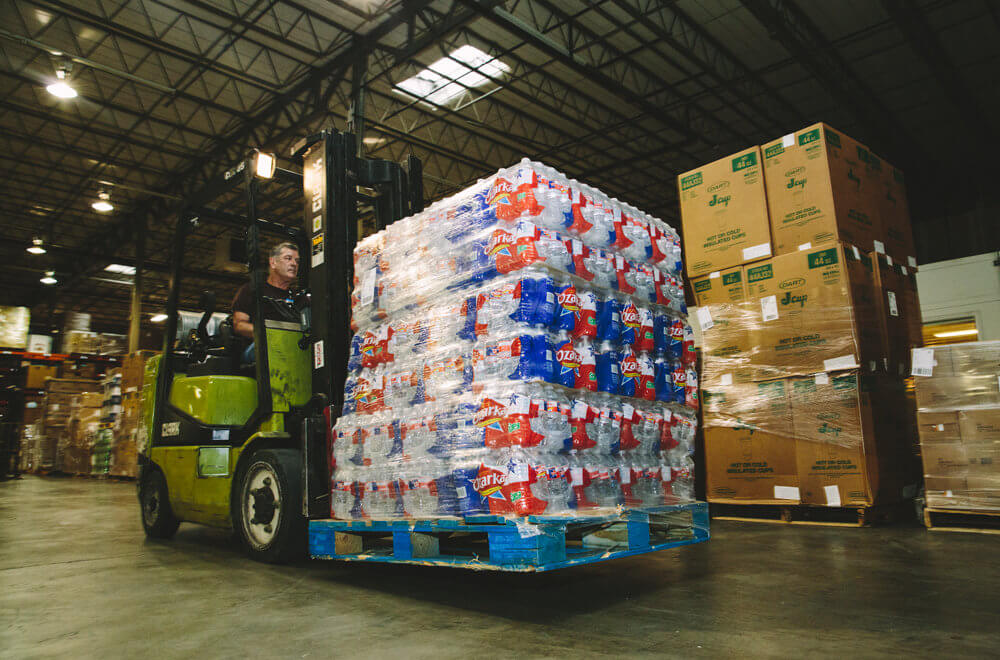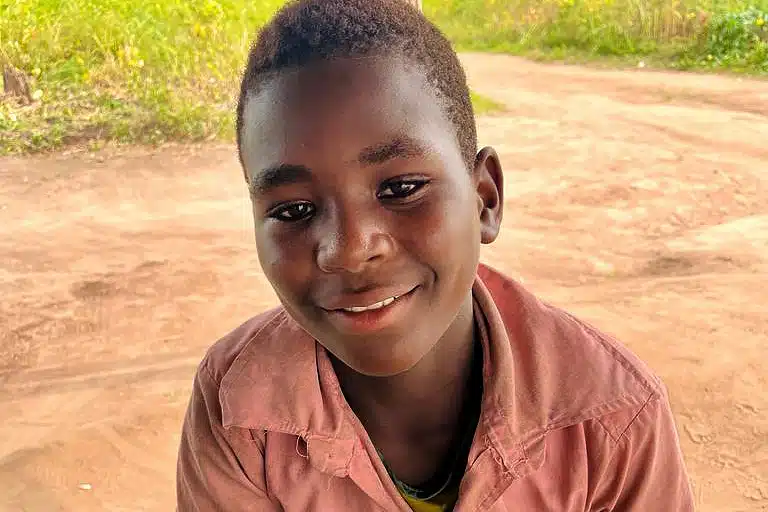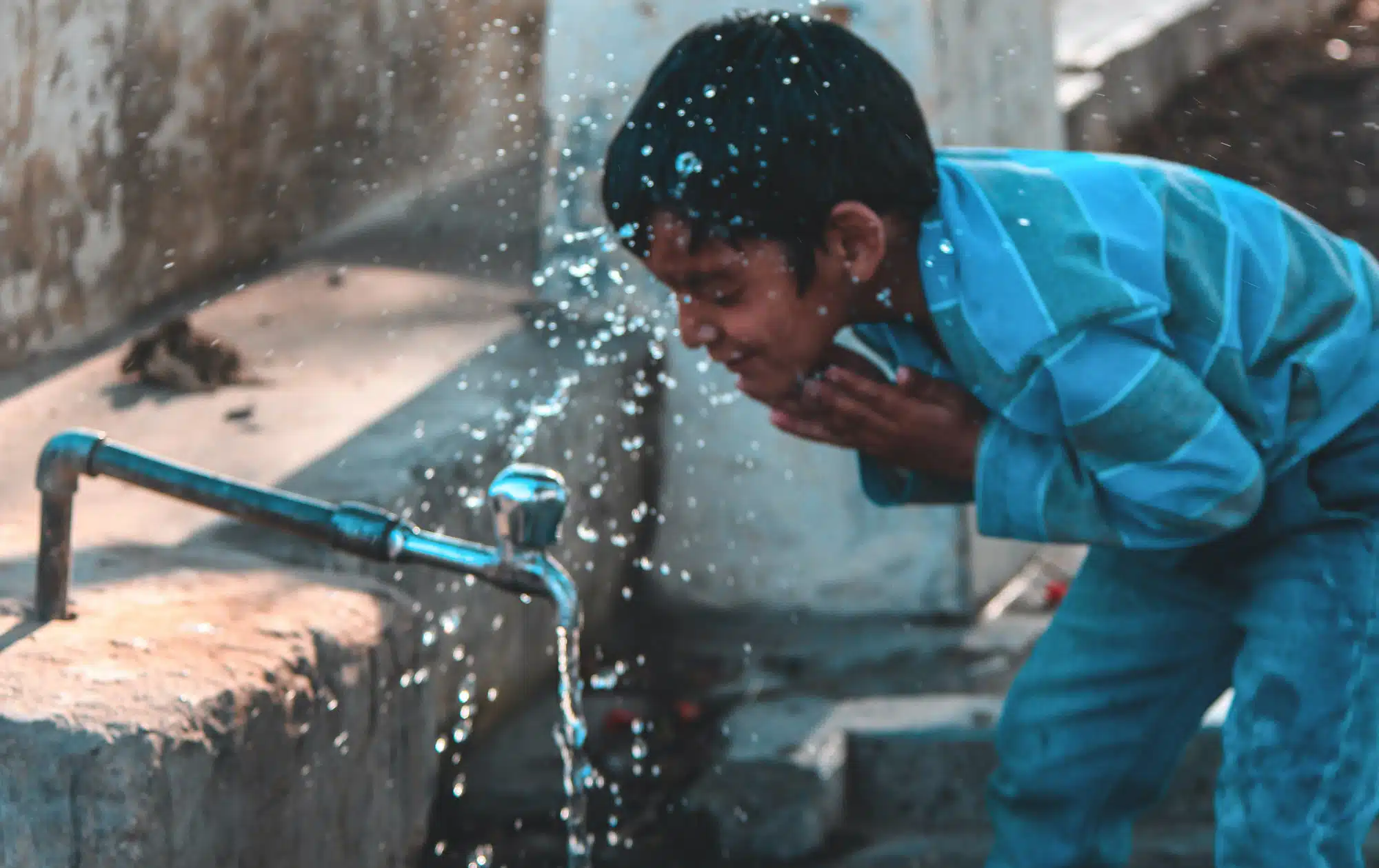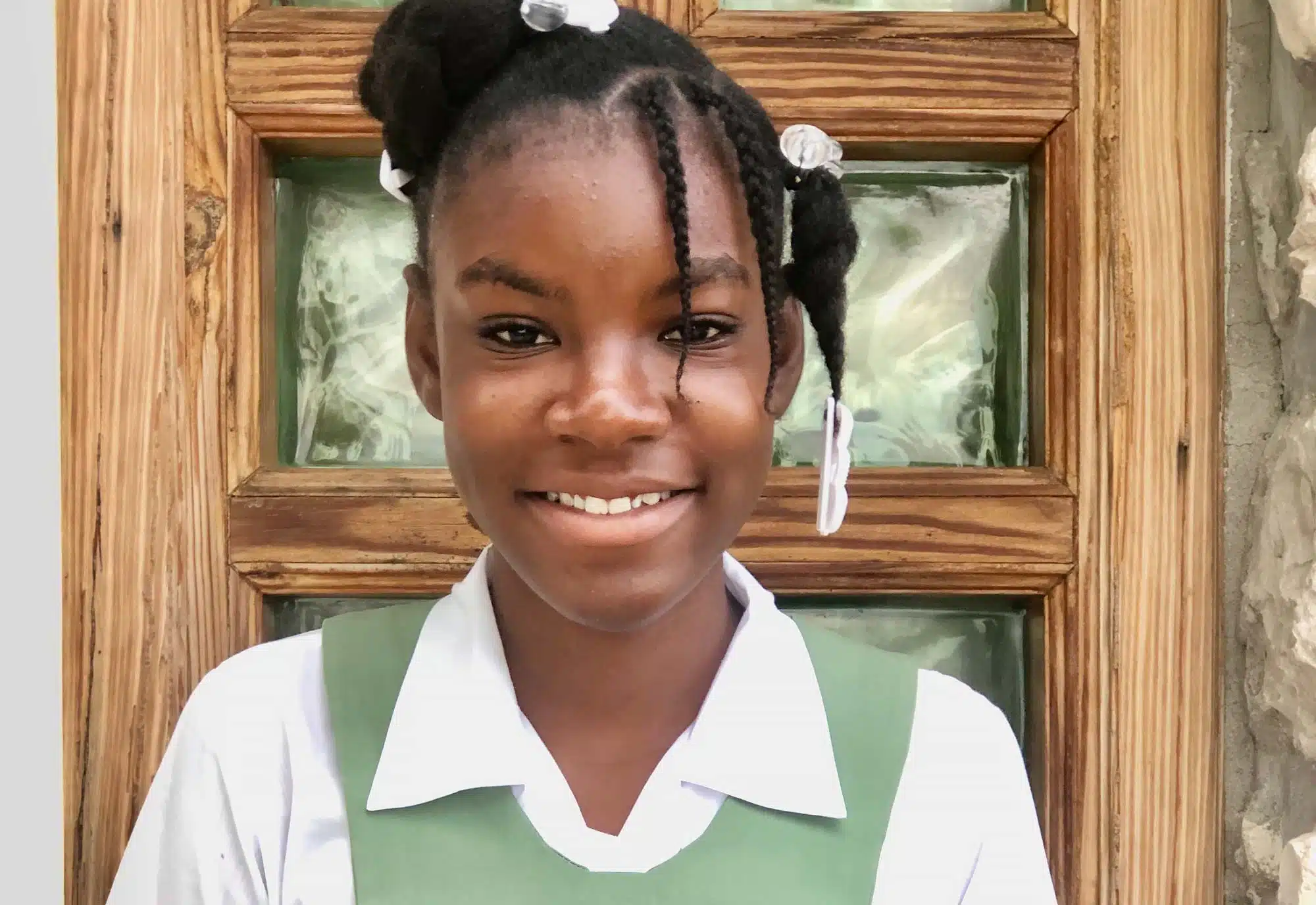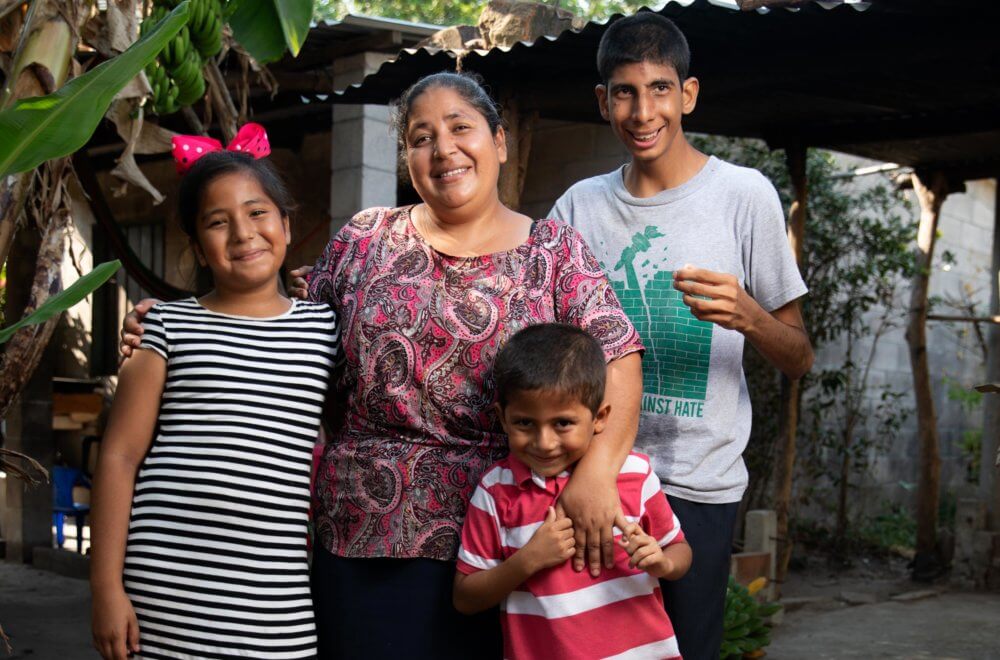
For the first time in a long time, Emely has money in her pocket and a smile on her face. She walks differently — taller, somehow.
She makes sure her three children — Derian, Nelly, and Ademir — are dressed, balancing a bucket of cleaning supplies on her head while ushering them out of the house. The brisk morning air gradually warms as the family walks to the program center. Life in their small town in El Salvador moves slowly this early in the morning.
Emely soon drops the kids off at a Convoy of Hope program center, where bowls of hot food wait for them, and continues her daily routine selling cleaning supplies. She visits her regular customers and hopes to pick up a few new ones. Her life of hunger and unpayable medical bills feels like it was ages ago. But the people closest to Emely know her former life of poverty isn’t as distant a memory as it seems. Just a few short months ago, her situation was very different.
“I was frustrated and hopeless,” Emely recalls. A doctor had ordered her husband, Daniel, to stop working in the sugarcane fields. The oppressive heat that El Salvador experiences year long was more than his body could handle.
Emely had taken the news as best she could, but the countdown to dinnertime was always ticking. Bananas growing in the yard were the family’s only dependable food source.
At the same time Emely’s family was struggling, Convoy of Hope team members in El Salvador were looking at a map, trying to decide whether to open a program center in a rural area … Emely’s community. It had the potential to do a lot of good, but there wasn’t a school to tie the program to, which is the norm. The team had a strong church partner in the area, but they weren’t sure it was enough to make the center successful.
The team soon discovered their doubt was no match for the intense resolve of a local woman named Marleni. She had a large front porch and a long table, but what was most valuable was her burning desire to help children in her community. Convoy of Hope knew there would be risk investing in such an informal setting … but they also knew such a risk could transform into a reward that could change lives forever.
Convoy decided to equip Marleni with food, training, and Convoy teams to advise, measure the children’s progress, and encourage them along the way. Recounting the first days seeing her kids eat at the program center, Emely closes her eyes and smiles. “It helps a lot. My kids love the soy and rice.”
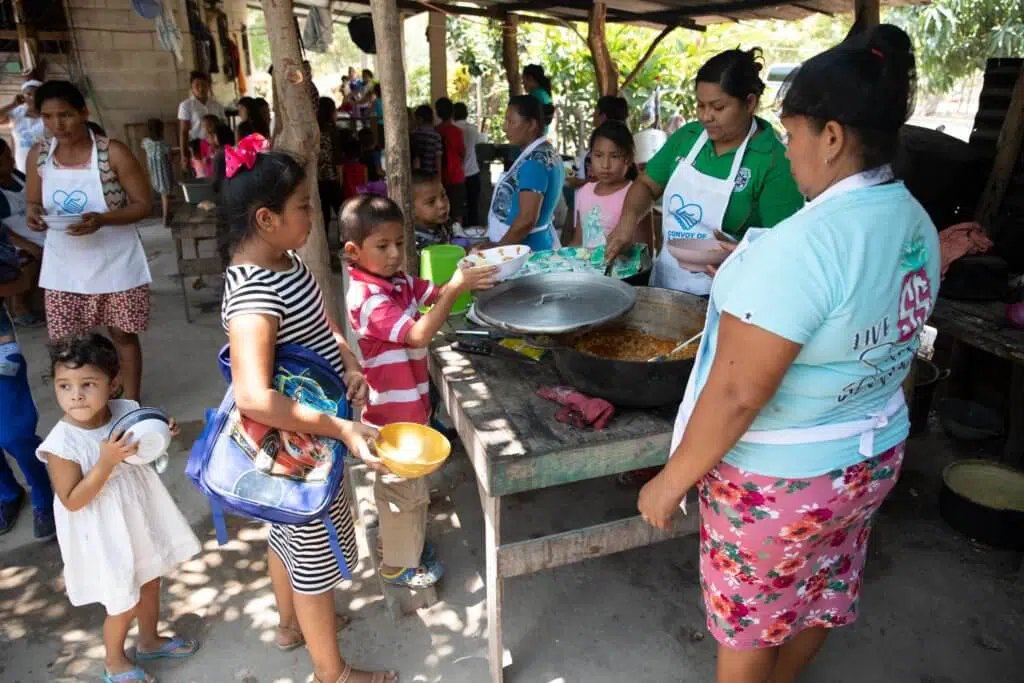
For Emely’s family, the burden of hunger — one of the most obvious effects of poverty — began subsiding as soon as the center began flourishing. Sadly, the roots of poverty aren’t eradicated so easily. Emely’s financial situation was better now that the children were being fed, but they only had just enough to get by each day. There was no way she could save for the future or pay for emergency expenses.
As the program center in Emely’s community grew, Convoy of Hope decided to start a Women’s Empowerment program to train women how to start businesses. This news spread like wildfire, but there was a catch: the program was specifically designed to help single mothers. Emely was not single, but her husband’s condition made it as if she was. As Convoy of Hope teams came to know her better, it became obvious that the potential to help Emely’s entire family was boundless.
To her great joy, Emely was able to join the program.
Roxanna, a Convoy of Hope employee, guides women through weeks of training by teaching them everything from calculating revenue and savings to market evaluation. Incredibly, some of the women are learning to read and write as they go. Others, like Emely, get to put their skills into practice right away in their own business.
Emely received the seed capital she needed to start her business after completing weeks of classes. She immediately invested in cleaning supplies and sold them door to door. Business was great. For the first time, Emely had enough money to buy food and medication for her husband.
As revenue flowed in, Emely expanded her business. She wasn’t just selling supplies, she was buying wholesale and distributing on a larger scale. The training she received was working. Her eager hands kept busy, but there were bigger fish in the sea.
Quite literally.
“I knew the fish business would make more money than other businesses in this area,” said Emely. After saving enough money from her cleaning supply business, Emely bought 25 pounds of fish from a man on the beach. With a bucket balanced on her head, this time filled with fish, she walked her town’s dusty roads. Her smile, fairness, and drive won her customer after customer.
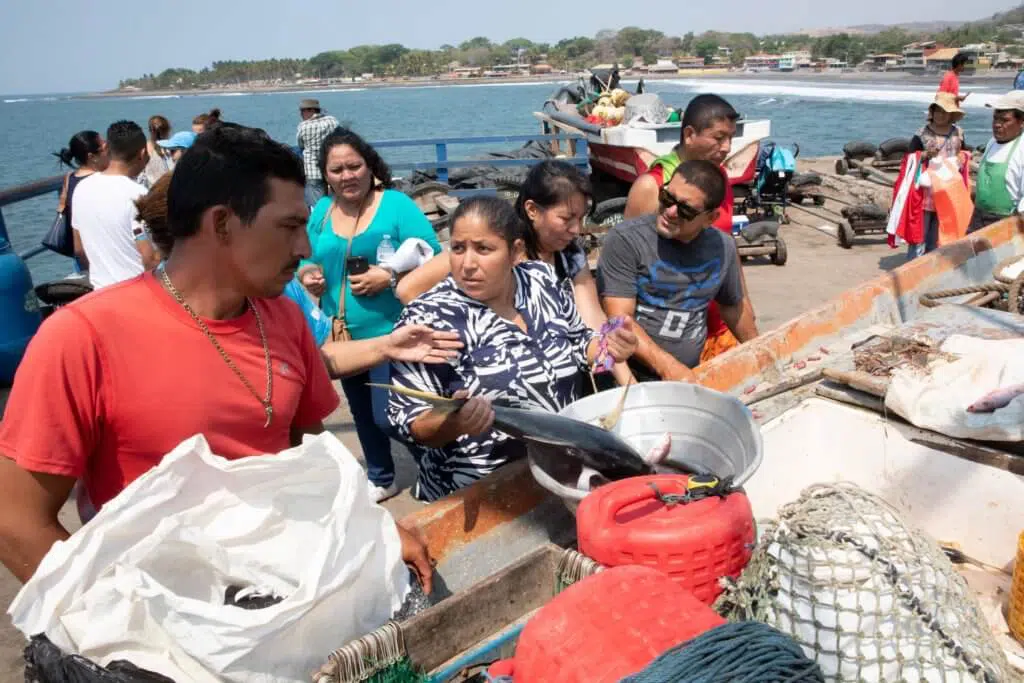
Within a couple of months, Emely hired her first employee, Madeline.
“I’m so happy, because I’ve been able to help her,” said Emely. “Sometimes she comes back and she says, ‘Here are some fish that I couldn’t sell.’ I just tell her, ‘Go ahead and take it home,’ because I know she’s a person in need. I have needs too, but I recognize that she is a person who needs more.”
Madeline has five children and a husband who offers very little support. She was the first of three people Emely now employs, including one man. Each one is a person in her community who needs a boost.
“It breaks my heart,” says Emely, her eyes filling with tears. “I went through that same situation.”
Emely goes to the shore each day and buys between 150 and 200 pounds of fish. With the help of her employees, most days it’s all gone by the time the sun sets.
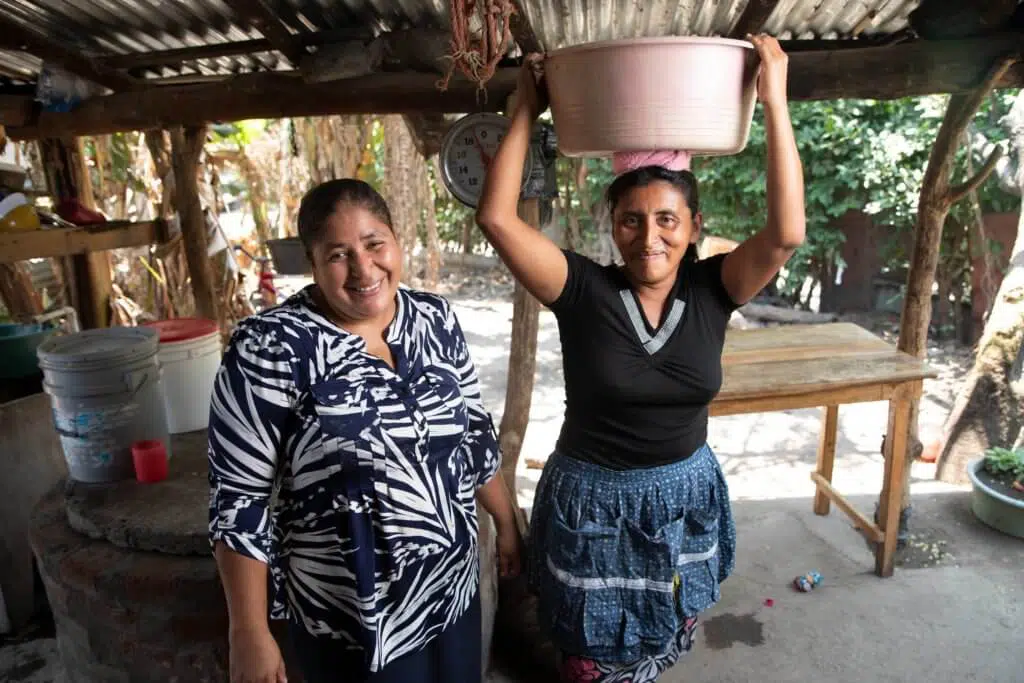
The cycle of poverty that trapped Emely’s family for years is fading into memory. Now her husband goes to the hospital twice a month for treatment. A few months ago, the family was able to run electricity to their house that powers a fan and a television.
These days, Nelly and Ademir are dressed in clean clothes and fly out the door each morning to school by way of Marleni’s program center. Derian, who has special needs, is everyone’s friend at mealtime. “It helps [Derian], because he loves to be around people,” says Emely. “He’s able to make friends by going to the center.”
Nelly in particular is flourishing in school. Last year, she was the top student in her class. The food that she receives from Convoy of Hope is fueling her education. “I’m the kind of student that has to make an effort,” she says. “I’m not the kind of person who’s not going to study because I know I’m smart.”
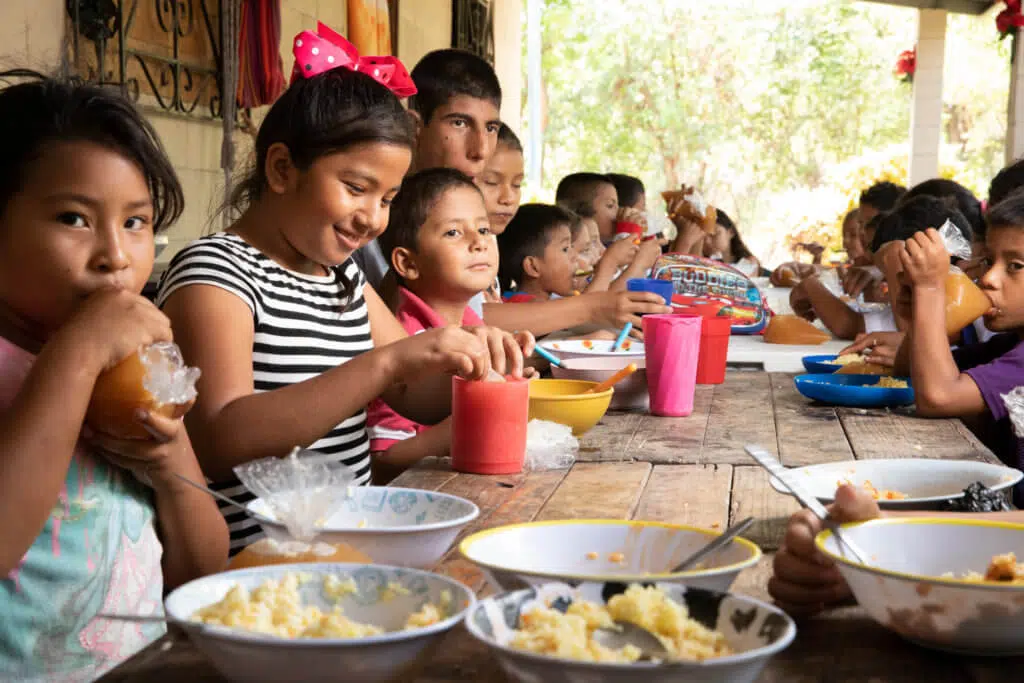
Emely and her kids sit on the porch, trading stories and hopes for the future in the warm Salvadoran afternoon. The next step in the business is to purchase a freezer so Emely can buy and sell more fish. A chicken coop, another room for their house, a proper fence, and a shower will all come next. The list of hopes for their family is long, but it always includes generosity.
“I feel good. When you give to others, the Lord gives you more to give. And it’s good to do that,” says Nelly.
As the family shares their plans for schooling and jobs in the future, Emely drops her voice, almost to a whisper. “Sometimes I dream, and I say, ‘Let’s pray that God would give us a car.’” Under the awning of their small house, the entire family bursts into shouts and laughter at the suggestion. Not because it’s ridiculous — because it’s a possibility.
“We dream big,” says Emely.
